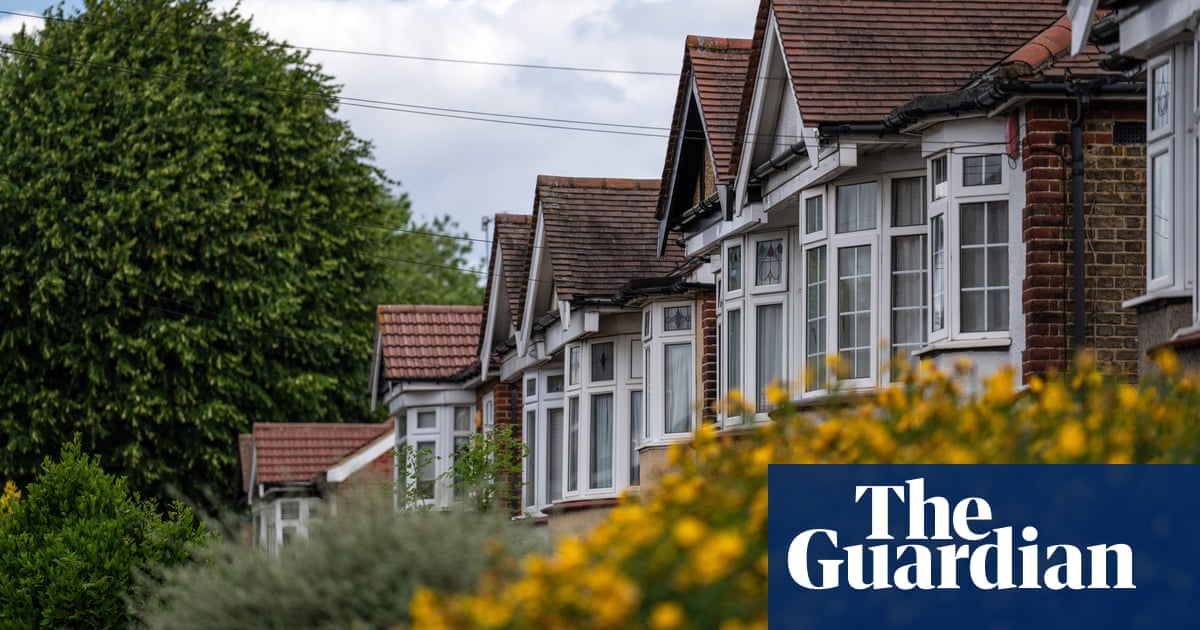
More prospective house sellers are returning to the UK’s property market, pushing agreed home sales to their highest point of the year in May, according to Zoopla, although it warned that the rebound in activity could be knocked by rising mortgage rates.
House prices have fallen by 1.3% nationally over the past six months, the property website found, but the speed of price falls has been decreasing as buyer confidence slowly improves.
Demand for properties remained weaker in May than a year earlier, although last month agreed house sales climbed 11% higher than the five-year average, which appears to have convinced more sellers to put their properties on the market.
While the slide in house prices since Liz Truss’s ill-fated mini-budget last autumn, which led to mortgage rates shooting up, has been more modest than initially anticipated, Zoopla found sales volumes are being affected by higher mortgage costs and inflation. Sales volumes are now expected to be 20% lower this year than in 2022.
It comes as houseowners looking for new mortgage deals have been warned to prepare for fixed-rate offers above 5% in the coming weeks, after recent disappointing inflation figures, and after economists forecast that the Bank of England’s interest rate could exceed 5% by the end of the year.
However, Zoopla said that higher mortgage rates had had a limited impact on house prices, as mortgage regulations introduced in 2015 have required new borrowers to prove to their lender that they could afford significantly higher mortgage repayments, at rates of 6-7%.
Despite the increase in house sales in May, Zoopla found that sellers are still having to retain “realistic” asking prices in order to attract interest from potential buyers, who are closely following economic developments.
Close to a fifth (18%) of homes currently listed for sale on Zoopla have had their asking price cut by more than 5%, down from 28% in February.
Richard Donnell, the executive director of research at Zoopla, said: “Sellers shouldn’t get carried away by more positive data on the housing market and need to price their homes realistically if they are serious about moving home in 2023.
“Homebuyers remain price sensitive with one eye firmly on the outlook for the economy, the cost of living and the trajectory of mortgage rates, which appear likely to edge higher in the coming weeks.”
There have been differences in the strength of housing market activity across various regions of the UK in the past month, and there has been more demand and higher numbers of sales in Scotland, the north-east of England, and London.
In contrast, there has been lower demand across southern England, in regions where above-average house price growth in recent years has outstripped any increases in earnings, adding to affordability challenges among prospective buyers, who are also being hit by higher mortgage rates.
Sales of rental properties by landlords are also boosting housing supply, representing just over one in 10 (11%) of homes for sale. Although below the pandemic peak of 14% in 2020, more landlords are choosing to sell after being hit by rising costs and higher mortgage rates.
This move could help first-time buyers, who accounted for more than one in three sales in 2022, as they often look for cheaper homes to do up.
The average price of a previously rented home is £190,000, Zoopla found, a quarter below the average price of a previously owned house, often appealing to first-time buyers.
The trajectory of UK house prices depends in large part on interest rates, according to Sarah Coles, the head of personal finance at the broker Hargreaves Lansdown.
“To an enormous extent, the future of the market lies in the Bank of England’s hands,” she said.
“The impact will depend to some degree on how long higher rates last. If core inflation starts to move in the right direction, it may ease concerns about more rate hikes – making mortgage deals cheaper. However, if inflation remains stickier than expected, this could cause more serious issues for the housing market.”












